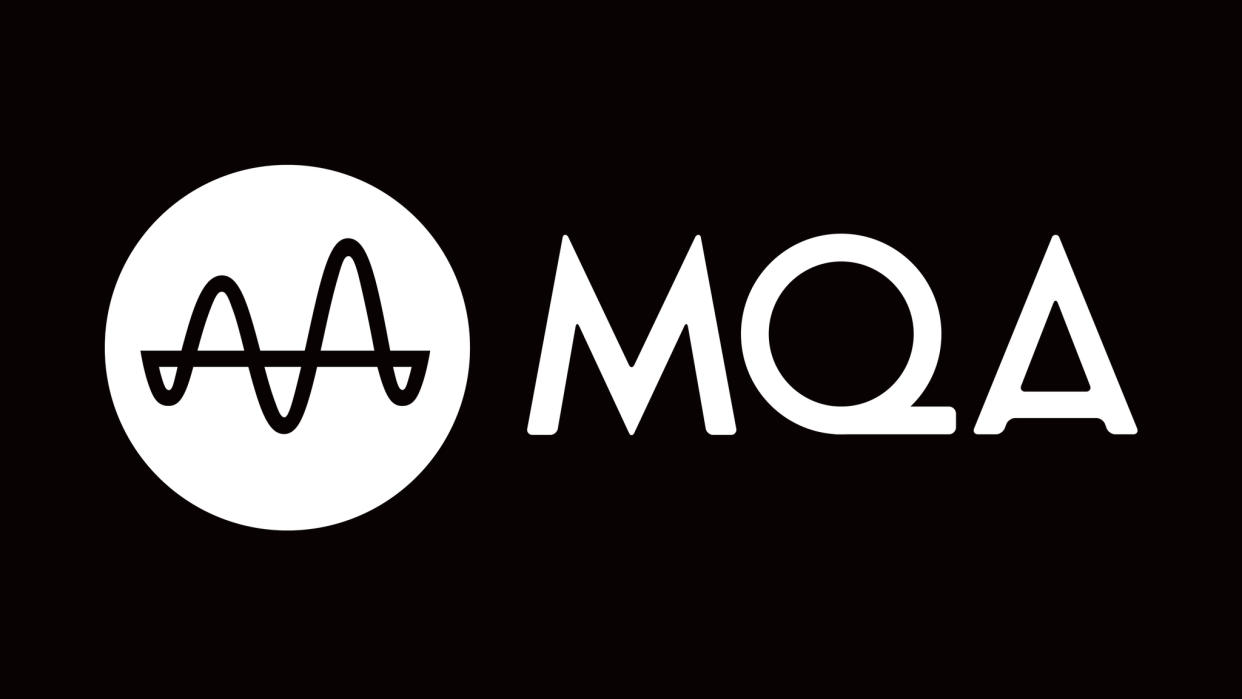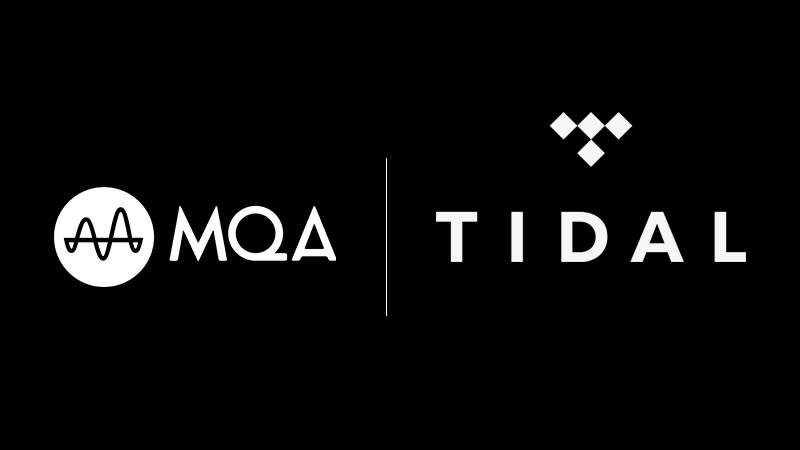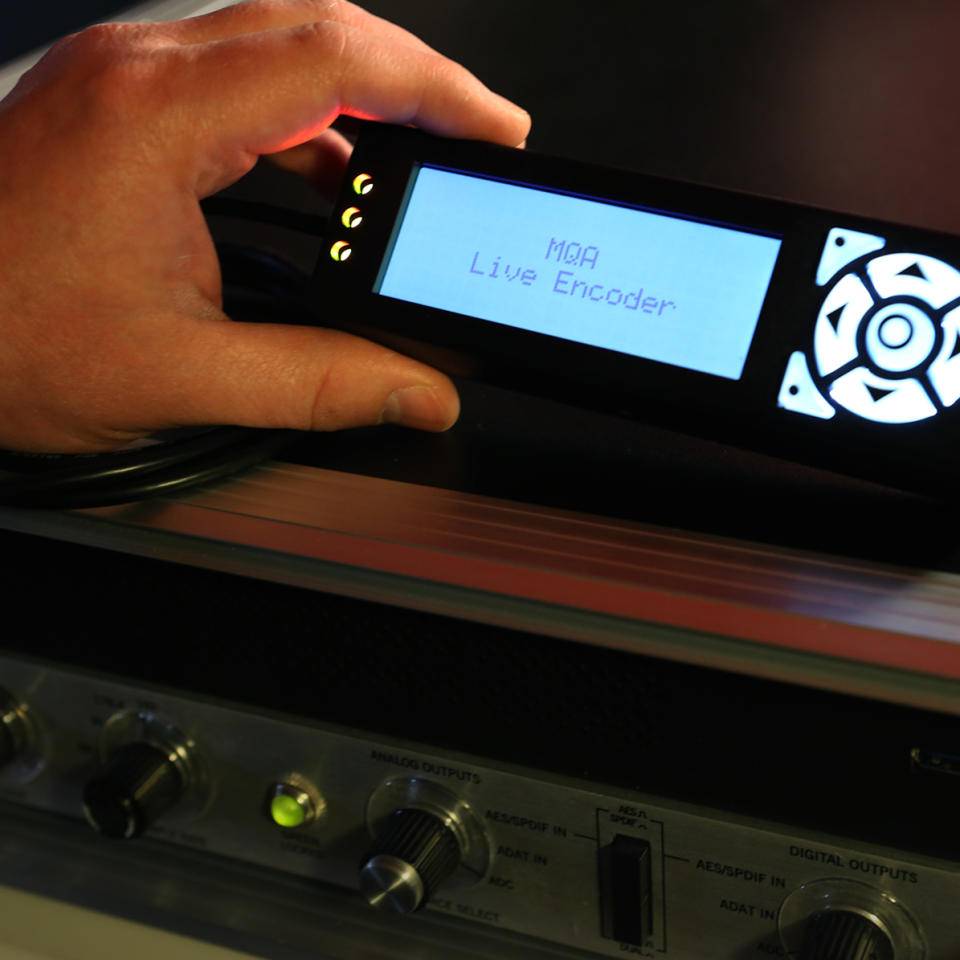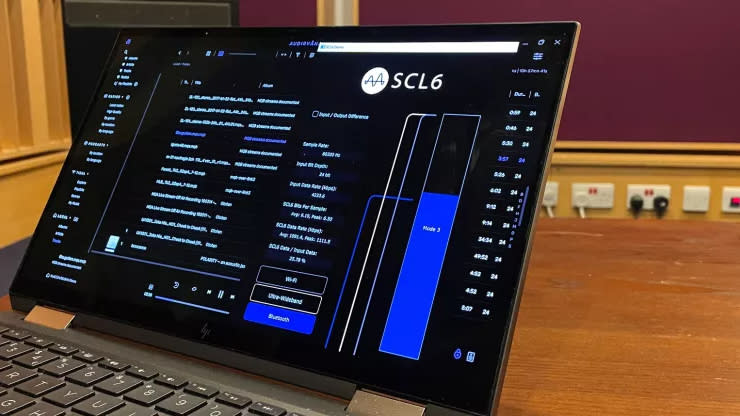MQA audio: what is it? And should you care?

Music streaming services are now the main medium through which many of us listen to music. Not all that long ago, most only offered standard, lossy compression music streams, whether 256kbps or 320kbps, AAC, MP3 or Ogg Vorbis. Spotify still does (and will until Spotify HiFi appears). But nowadays, the majority of streaming services – Apple Music, Amazon Music, Qobuz and Tidal – also offer better-sounding 'CD-quality', not to mention hi-res audio (by which we mean above CD quality), streams.
The first service to offer hi-res streaming was Qobuz, followed soon after by Tidal some five years before the others jumped aboard the hi-res streaming bandwagon. Our favourite music streaming service, Tidal launched its Tidal Masters hi-res library seven years ago, using MQA technology to make that possible. Consequently, hi-fi hardware began supporting MQA to facilitate Tidal's hi-res streams.
But a lot has happened since then. In the past twelve months, Tidal has added FLAC hi-res streams to its library while MQA has launched a new potentially groundbreaking technology and gone into administration and been rescued.
So what is MQA audio? Is the technology still relevant? And what does its future have in store?
High-resolution audio: everything you need to know
What is MQA?
MQA aims to “fundamentally change the way we all enjoy music”. It’s a method of digitally capturing and storing original master recordings as files that are small and convenient enough to download or stream, without the sonic sacrifices traditionally associated with compressed files. MQA is available via Tidal and MQA-CD, and products need to support the licensed technology to be able to decode and playback MQA music.
MQA claims its tracks use a similar bandwidth to that required for CD-quality streams. So if you’re able to stream Tidal’s CD-quality Hi-Fi tier with relative ease then the Tidal Masters-inclusive Hi-Fi Plus tier using MQA shouldn’t be a problem.
How can you listen to MQA?
Rather than being a new file type to sit alongside FLAC, WAV et al, MQA files can instead be packaged inside any lossless container such as FLAC, WAV or Apple Lossless. You will need compatible hardware, such as a music streamer or portable music player, or software such as the Tidal desktop/mobile app, to decode MQA audio.
Now that we're several years into its existence, there's plenty of it. Many digital hardware manufacturers have licensed the technology, so it can be found on the spec sheets of many digital products – DACs, streamers, streaming systems and the like.
The Pioneer XDP-100R and Onkyo DP-X1 were among the first MQA-compatible portable audio players, and that's since been expanded to include various players from Pioneer, Onkyo, Astell & Kern and Sony – including the Award-winning Astell & Kern A&norma SR25 MkII.
As for hi-fi kit, MQA compatibility only went one way for several years – up. It isn't exactly ubiquitous – Cambridge Audio's streamers like the MXN10 don't support it, for example – but you'll find it in many streaming-savvy audio products on the market.
MQA-supporting products include desktop and USB DACs such as AudioQuest's DragonFly Black, DragonFly Red and DragonFly Cobalt, Cambridge Audio's DacMagic 200M and iFi Zen DAC V2; music streamers like NAD C 658 and Technics SL-G700; and hi-fi systems including Dali Oberon 1 C and KEF LS50 Wireless II. Meridian, iFi, Arcam, Bluesound, dCS, Moon by Simaudio, Mark Levinson and Audiolab are also among MQA's product partners. Notable omissions on the hi-fi brand front include Linn and Chord.
One of the (if not the) major reasons for manufacturers to support MQA in their products was to allow owners who subscribed to Tidal to be able to play the service's hi-res library in all its glory, though now that Tidal also has a FLAC-powered hi-res library, hardware support may well thin out. We'll have to wait and see.
See the full list of MQA's hardware partners and products
Where can you find MQA music?

If Tidal Hi-Fi Plus subscribers don't have MQA-supporting hardware, they can still play Tidal's "millions" of Masters tracks through the Tidal desktop, Android and iOS apps, which can decode and play them through, say, your phone or Macbook. These apps can complete the first 'unfold' of MQA file decoding, outputting streams to a maximum of 24-bit/96kHz. However, the only way to entirely unpackage an MQA file for playback, and therefore give you a more accurate representation of the file, is by pairing the app with an MQA-compatible product (as listed above) that takes the decoding process away from the software (the Tidal app).
Tidal HiFi Plus subscribers can now easily 'cast' MQA Tidal Masters from the app to compatible kit, too, thanks to a new feature called Tidal Connect. Essentially Spotify Connect for Tidal, it allows the native Tidal app to be a controller for connected devices – like Chromecast can, only Connect supports Tidal's MQA and Dolby Atmos Music catalogue. Unsurprisingly, many MQA-supporting hi-fi brands are now supporting Tidal Connect.
With major music labels such as Universal, Warner Bros and Sony Music offering music in the MQA format, there was a time when we thought more music streaming services would get in on the action too. But Apple Music and Amazon Music found alternative ways to offer hi-res streaming, and while Deezer announced a partnership with MQA back in September 2017, nothing ever materialised. Now that Tidal has decided to offer hi-res FLAC streams alongside its MQA library, opening up hi-res access to those with non-MQA kit, it’s hard to believe that the MQA format has a bright future.
As for actual MQA music files that you can own, these are available to download from the Highresaudio and 2L download stores, as well as e-onkyo music and groovers (Japan only). And if you're looking to play such purchased files through a PC or laptop, dedicated desktop music player software, such as Audirvana and Roon, also supports MQA. While more niche, physical MQA-CDs are also a thing and can be bought on Amazon and the like.
What about MQA Live?

MQA has also been experimenting with “original quality” real-time concert streams with its MQA Live technology, which it has demonstrated at various trade shows in recent years.
The point of Live is to create a virtual gig experience, allowing people to listen to their favourite bands’ live performances if they can’t attend the event themselves.
To do this, MQA has made a live encoder box that connects to a venue’s audio system and is able to send what is being played to the chosen delivery platform of the venue. MQA claims the encoding process “preserves audio quality and addresses bandwidth issues”.
In 2020, MQA channelled this experience into a new format – The Masters Sessions – through a partnership with one of its hardware partners, Bluesound. These sophisticated audio soirees comprise live concerts, streamed in MQA studio quality, to over 140 esteemed audio dealerships around the world, played through each dealer's Bluesound MQA-enabled audio players. These dealers have included eight Sevenoaks Sound and Vision stores, in Bristol, Chelsea, Sevenoaks, Reading, Oxford, Solihull, Cambridge and Manchester. The initiative is still young – only a few sessions have been hosted so far – but there are more to come!
In support of the UK artists that were set to play at SXSW but couldn't because of the Coronavirus pandemic, MQA partnered with the British Music Embassy and us (!) to live stream mini-concerts on the What Hi-Fi? YouTube channel using MQA tech.
Since then, all has been quiet on the MQA Live front.
MQA SCL6: a groundbreaking codec?
While MQA technology as we've known it might have an uncertain future, the company last year launched a potentially groundbreaking codec that could help facilitate hi-res audio on the go – MQA SCL6.
SCL6 is essentially a way of packaging a file for wireless transmission (in much the same way as a Bluetooth codec like aptX or LDAC is) and works for broadcast and streaming across Bluetooth, UWB (Ultra Wide Band) and wi-fi. How is it different to Bluetooth codecs then? Well, for one, it has the potential to offer better on-the-go sound quality, as it is purportedly able to transfer data at a much higher data rate than Bluetooth codecs currently can. So will we see hi-res wireless playback for portable products without the need for wi-fi? Possibly. SCL6 is uniquely adaptable too and therefore able to react to the quality of the link between the sending device and the receiver.
As this technology was only recently announced, we are yet to see hardware support and therefore SCL6 in real-world action (though we did go hands-on with the technology during an SCL6 demo). That said, a pair of PSB-branded wireless headphones is due to be among the first SCL6-compatible products, planned for launch sometime this year.
Why PSB? That partnership seemed unlikely to us too, however it now makes more sense – Lenbrook (who owns PSB, Bluesound and NAD) recently rescued MQA from administration. At the start of this year, it announced plans to grow MQA and SCL6, having set up a new Lenbrook Media Group business unit, which is being overseen by former MQA CEO Mike Jbara, to do so.
Only time will tell how much impact SCL6 makes on the quality of wireless music on the go, but there are clearly plans to use it.

MQA's future
In April 2023, news broke that MQA was going into administration, with the company's official statement reading as follows:
"Following the recent positive reception to MQA’s latest technology (SCL6), there has been increased international interest in buying MQA Ltd. At the same time, MQA’s main financial backer is seeking an exit. In order to be in the best position to pursue market opportunities and expedite this process, the company has undergone a restructuring initiative, which includes entering into administration and is comparable to Chapter 11 in the US."
That had us wondering what the future of MQA holds and any potential implications for the hi-fi industry, not least as Tidal the same week announced its plans to introduce hi-res FLAC streaming on its service. MQA and FLAC streams now sit side by side on the Tidal catalogue, with the latter open to all products – no license needed. That certainly casts doubts on the future of the technology as we know it. Will Tidal keep supporting MQA? Will products keep paying for the license fee and supporting MQA?
However, the company's new SCL6 codec sounds promising and under new Lenbrook ownership could well pave the way for a bright hi-res future.
MORE:
It gets a lot of FLAC, but MQA's saving is a good thing for hi-fi
Hi-res music streaming services compared: which should you sign up for?
MP3, AAC, WAV, FLAC: all the audio file formats explained
Tidal tips: how to download music, play it offline, and more
Struggling to hear the difference between hi-res and non-hi-red audio? The problem with hi-res audio is how you might be listening to it
